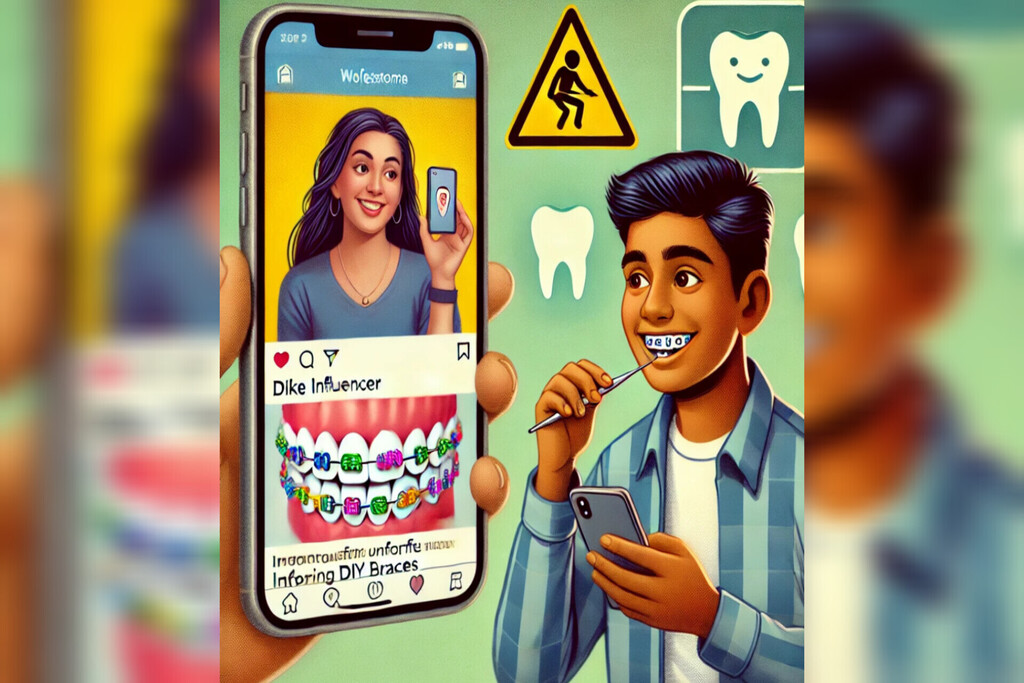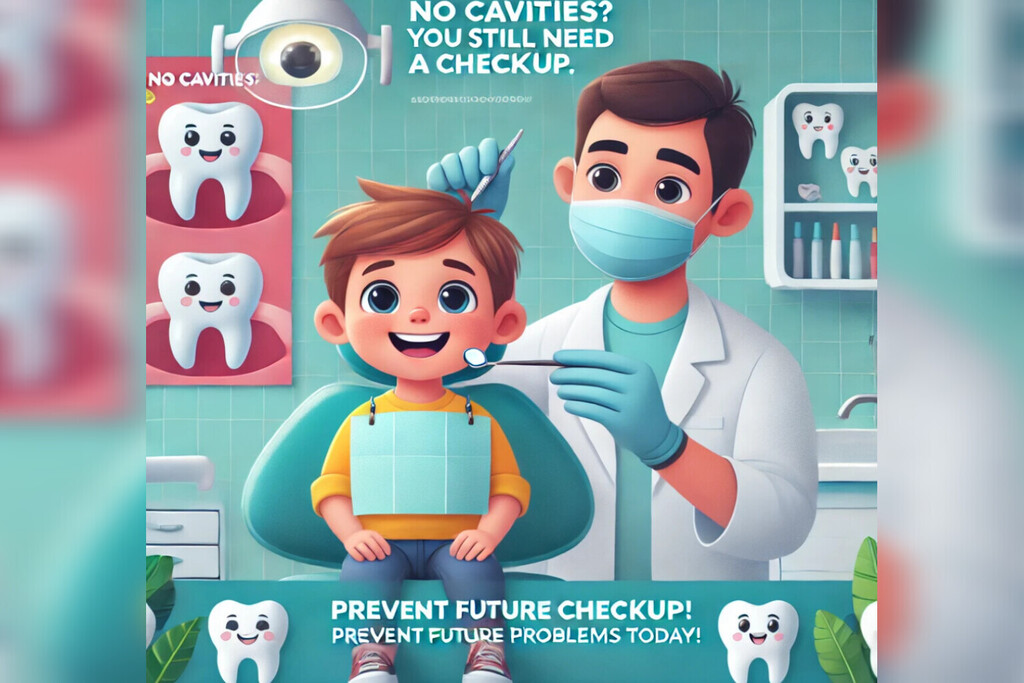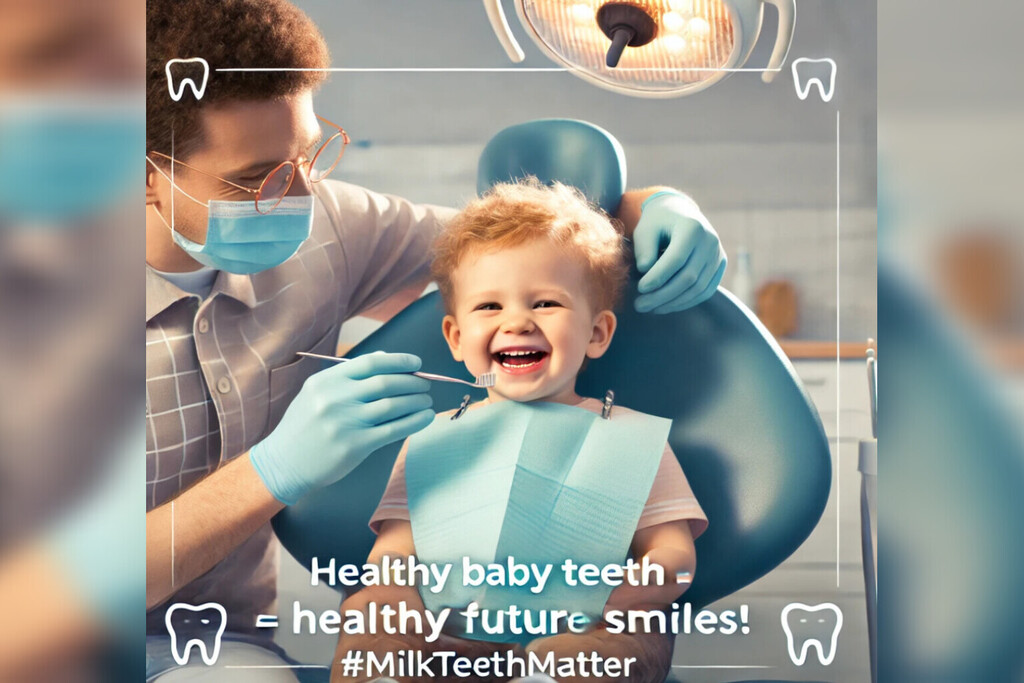The Importance of Baby Teeth: Why Indian Parents & Grandparents Must Pay Attention
In many Indian households, the belief that baby teeth don’t matter because they will eventually fall out has led to widespread negligence. Unlike in Western countries, where pediatric dental care is prioritized, Indian families often delay or completely ignore dental visits for children. The reality is that baby teeth are critical for a child’s overall development. Ignoring their care can lead to serious long-term consequences, many of which could have been prevented with timely intervention.
Global vs. Indian Perspective on Pediatric Dental Care
Global Approach:
- Many developed countries promote early dental checkups (by age 1).
- Schools and parents emphasize fluoride treatments, regular professional dental cleanings, and preventive care.
- Sugar intake is regulated, and children are educated about oral hygiene.
Indian Scenario:
- Delayed dental visits—many Indian parents take their child to a dentist only when a problem arises.
- Excessive sugar consumption—sweets like laddoos, jalebis, and chocolates are commonly given as rewards.
- Lack of awareness—many elders believe home remedies work better than professional dental care.
- Myths and misinformation—false beliefs such as “baby teeth don’t matter” or “clove oil can cure all tooth problems” mislead to many dental problems.
Common Dental Problems in Indian Children
- Tooth Decay (Cavities) Due to Sugar-Rich Diets
Cavities are the most prevalent dental issue worldwide, but in India, the risk is higher due to traditional food habits. Children frequently consume sweets like rasgullas, chocolates, and biscuits, often without proper oral hygiene.
What elders can do?
- Reduce the habit of offering sweets as rewards.
- Encourage children to rinse their mouth after eating sugary foods.
- Make brushing a habit twice a day with fluoride toothpaste.
- Early Childhood Caries (Baby Bottle Tooth Decay)
Prolonged bottle-feeding, especially at bedtime, leads to severe tooth decay. Many Indian parents also give honey, jaggery, or sweetened milk in feeding bottles, further worsening the problem.
What elders can do?
- Avoid giving sugary drinks in bottles.
- Transition to a cup by age one.
- Clean the baby’s gums after feeding and introduce brushing early.
- Gum Disease (Gingivitis & Periodontitis)
Indian children often suffer from swollen, bleeding gums due to poor brushing techniques and a lack of awareness. Many elders believe that bleeding gums are normal and avoid seeking professional advice.
What elders can do?
- Teach proper brushing methods.
- Ensure children use soft-bristled toothbrushes.
- Take kids for regular dental checkups.
- Malocclusion (Misaligned Teeth & Bite Issues) Due to Poor Oral Habits
Habits like thumb-sucking, mouth breathing, and tongue-thrusting are more common in Indian children due to lack of awareness. In many cases, parents delay orthodontic treatment, making corrections difficult later in life.
What elders can do?
- Discourage prolonged thumb-sucking and pacifier use.
- Consult a dentist if the child’s teeth appear misaligned.
- Dental Fluorosis Due to Contaminated Water
Excess fluoride in drinking water causes fluorosis, leading to permanently stained or damaged teeth. This problem is especially common in Rajasthan, Gujarat, and Andhra Pradesh, where groundwater fluoride levels are high.
What elders can do?
- Use fluoride-free toothpaste in high-fluoride areas.
- Ensure children drink filtered or purified water.
- Tooth Injuries Due to Lack of Awareness
Many children in India sustain dental injuries due to falls, cycling accidents, or sports injuries. However, most parents and grandparents believe that primary teeth will be replaced, so they don’t seek medical intervention.
What elders can do?
- Take dental injuries seriously and visit a dentist immediately.
- Encourage protective gear for sports.
Other Notable Dental Issues in Indian Children
- Delayed Tooth Eruption Due to Malnutrition
In India, under nutrition is a significant issue that affects tooth development. Children with vitamin deficiencies (especially calcium and vitamin D) may experience delayed teething.
What elders can do?
- Ensure children get a balanced diet rich in dairy, green vegetables, and nuts.
- Provide vitamin supplements if recommended by a pediatrician.
- Encourage exposure to sunlight for natural vitamin D.
- Oral Habits like Lip Biting, Mouth Breathing & Nail Biting
Many Indian children develop habits such as lip biting, nail biting, and mouth breathing, which can negatively impact dental and jaw development. However, elders often dismiss these habits as harmless.
What elders can do?
- Identify and discourage harmful habits early.
- Seek advice from a dentist if the child continues these habits beyond age 5.
- Lack of Dental Hygiene Awareness among School-Aged Children
In many Indian schools, oral health is not a priority, and children receive minimal education on the importance of brushing and flossing.
What elders can do?
- Teach children proper brushing techniques at home.
- Request schools to include oral hygiene awareness programs.
The Role of Indian Myths & Misinformation in Neglecting Baby Teeth
Many Indian households rely on age-old myths rather than scientific knowledge. Here are some common myths and the truth behind them:
| Myth | Reality |
| “Baby teeth don’t matter as they will fall out anyway.” | Baby teeth guide permanent teeth into place; early loss can cause misalignment.
|
| “Clove oil can cure all tooth pain.” | Clove oil provides temporary relief but does not treat the underlying issue.
|
| “Teething babies should be given honey or jaggery.” | Honey can cause infections, and sugar leads to decay.
|
| “Brushing baby teeth is unnecessary.” | Oral hygiene should begin as soon as the first tooth appears.
|
Breaking the Negligence Mindset: What Elders Must Do
- Schedule early dental visits – A child’s first dental visit should be by age of 1 year.
- Monitor children’s brushing habits – Ensure they brush properly and don’t skip.
- Educate family members – Ensure parents and caregivers understand the importance of oral care.
- Lead by example – When children see elders taking care of their teeth, they will follow.
- Encourage a tooth-friendly diet – Reduce sweets, include calcium-rich foods, and ensure proper hydration.
Conclusion
The belief that baby teeth don’t matter is a dangerous myth in Indian society. By understanding common dental problems and their solutions, Indian elders can take an active role in protecting children’s oral health. Early prevention saves pain, money, and lifelong dental issues.
At Smiley Dental Treatment Centre Pvt Ltd, we encourage families to prioritize their child’s dental care. Book an appointment today and secure a healthy smile for your little one!
We are one of the few Super specialty dental clinics in Kolkata with a dedicated Pediatric dentistry department, where our experienced Pediatric dentist gives a pain-free hassle-free dental treatment experience for your little ones.
Edited by Dr Sourav Ghosh, Chief Consultant at Smiley Dental Treatment Centre Pvt Ltd

















